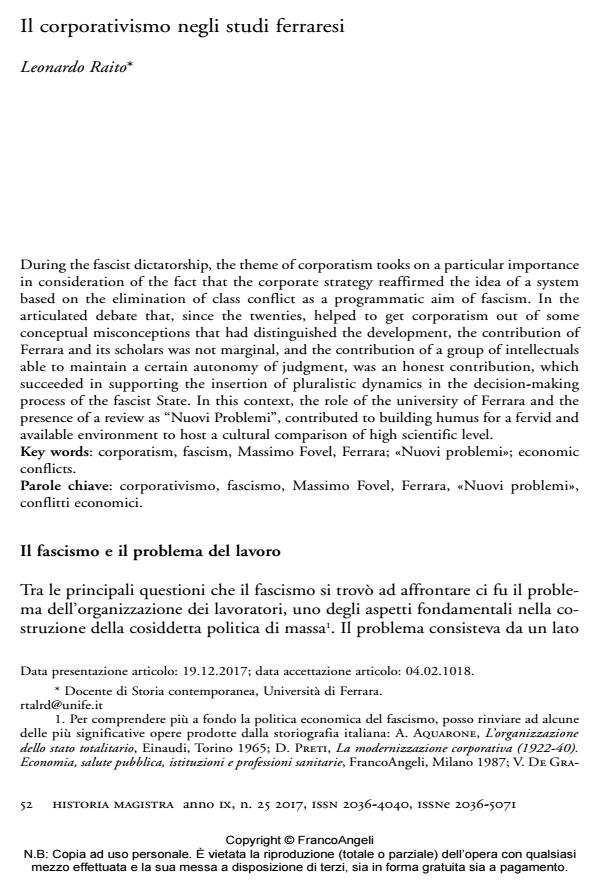Il corporativismo negli studi ferraresi
Titolo Rivista HISTORIA MAGISTRA
Autori/Curatori Leonardo Raito
Anno di pubblicazione 2018 Fascicolo 2017/25
Lingua Italiano Numero pagine 21 P. 52-72 Dimensione file 122 KB
DOI 10.3280/HM2017-025005
Il DOI è il codice a barre della proprietà intellettuale: per saperne di più
clicca qui
Qui sotto puoi vedere in anteprima la prima pagina di questo articolo.
Se questo articolo ti interessa, lo puoi acquistare (e scaricare in formato pdf) seguendo le facili indicazioni per acquistare il download credit. Acquista Download Credits per scaricare questo Articolo in formato PDF

FrancoAngeli è membro della Publishers International Linking Association, Inc (PILA)associazione indipendente e non profit per facilitare (attraverso i servizi tecnologici implementati da CrossRef.org) l’accesso degli studiosi ai contenuti digitali nelle pubblicazioni professionali e scientifiche
During the fascist dictatorship, the theme of corporatism tooks on a particular importance in consideration of the fact that the corporate strategy reaffirmed the idea of a system based on the elimination of class conflict as a programmatic aim of fascism. In the articulated debate that, since the twenties, helped to get corporatism out of some conceptual misconceptions that had distinguished the development, the contribution of Ferrara and its scholars was not marginal, and the contribution of a group of intellectuals able to maintain a certain autonomy of judgment, was an honest contribution, which succeeded in supporting the insertion of pluralistic dynamics in the decision-making process of the fascist State. In this context, the role of the university of Ferrara and the presence of a review as "Nuovi Problemi", contributed to building humus for a fervid and available environment to host a cultural comparison of high scientific level.
Parole chiave:corporativismo, fascismo, Massimo Fovel, Ferrara, «Nuovi problemi», conflitti economici.
Leonardo Raito, Il corporativismo negli studi ferraresi in "HISTORIA MAGISTRA" 25/2017, pp 52-72, DOI: 10.3280/HM2017-025005